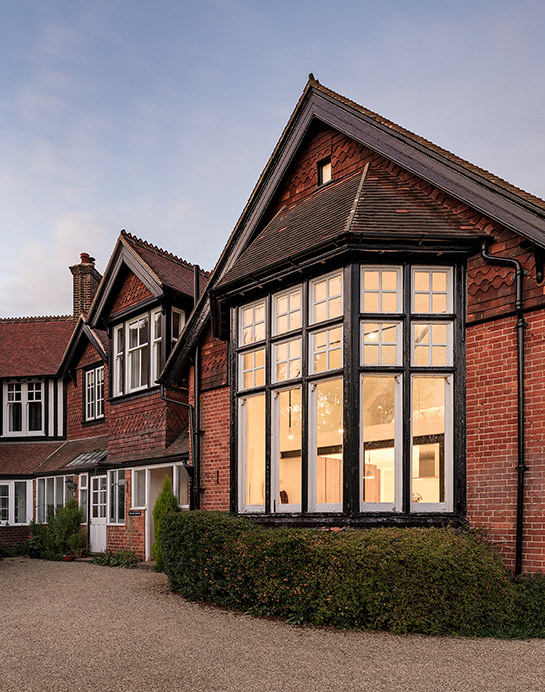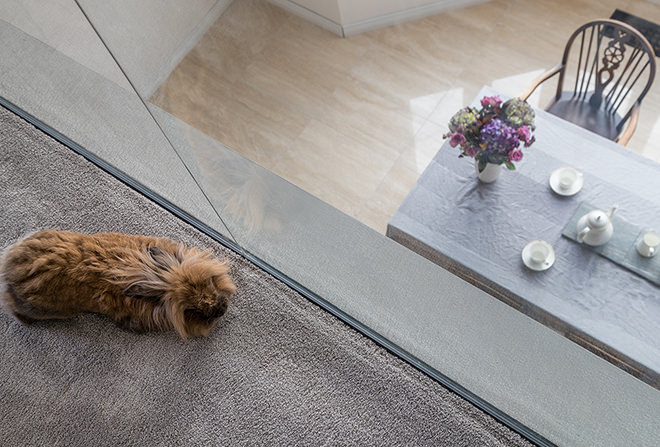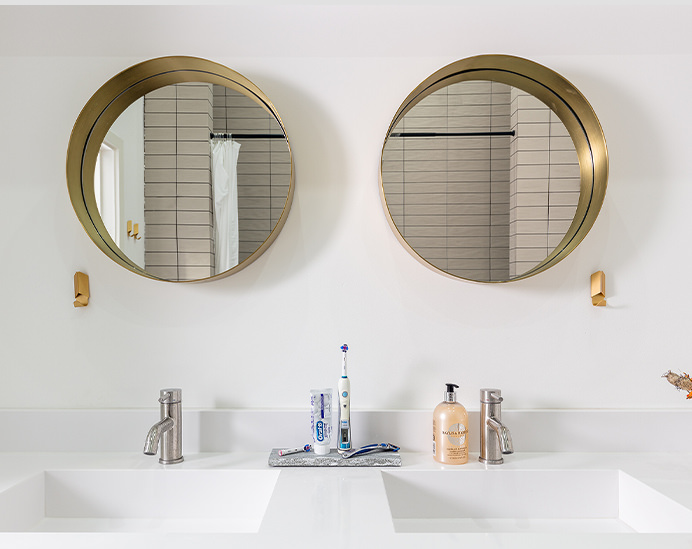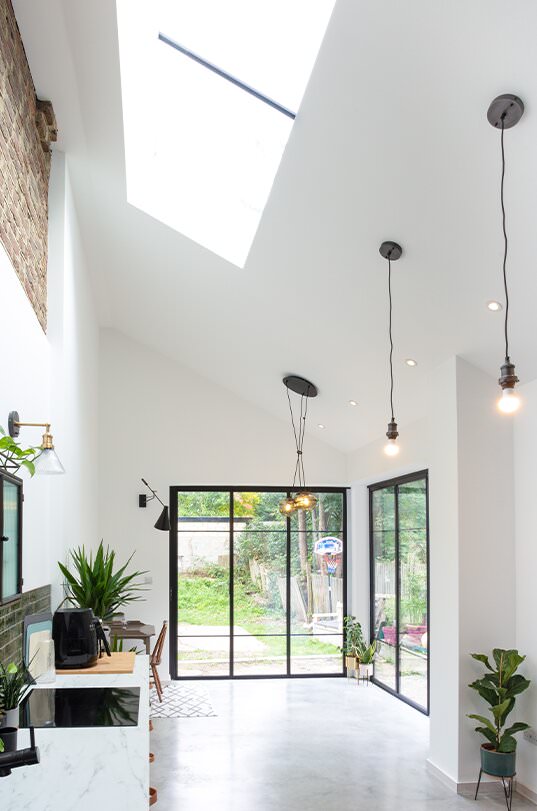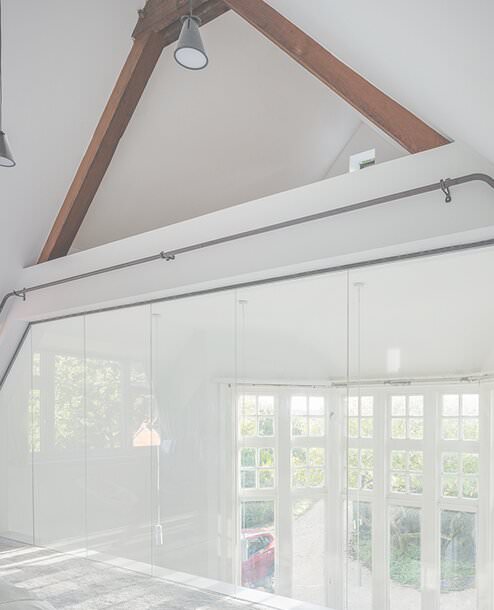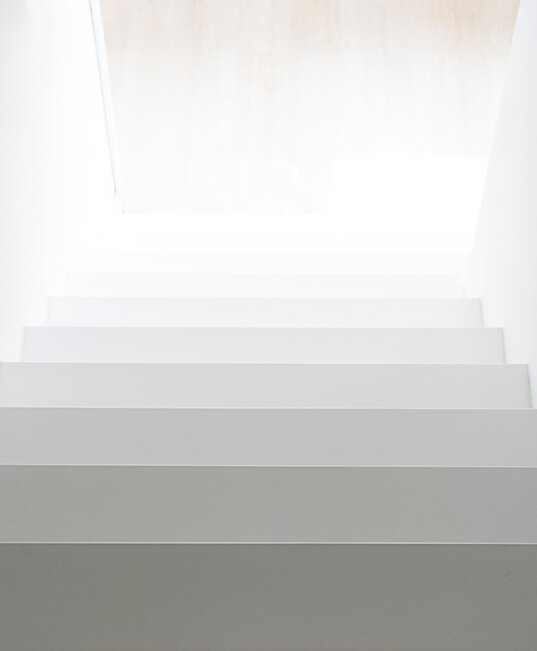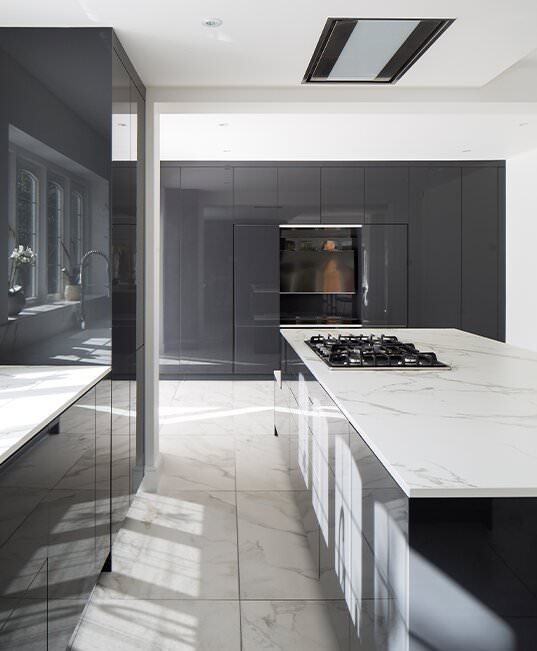A Comprehensive Guide to Estimating the Cost of Building a House in 2024
January 10, 2024
Building a house is an exciting endeavour, but one that comes with a lot of financial considerations. Estimating the cost of building a house can be a daunting task, especially for those without experience in the construction industry.
However, with the right guidance and knowledge, you can navigate this process with confidence. In this comprehensive guide, we will take you through the essential steps to estimate the cost of building a house. We will cover everything from setting a realistic budget and understanding the factors that influence construction costs to calculating the cost of materials, labour, and other expenses. By the end of this guide, you will have a solid understanding of what it takes to create a reliable and accurate estimate for your new home. Whether you are planning to build a modest starter home or a grand custom residence, this guide will provide you with valuable insights and practical tips to help you plan your budget effectively. So, let's dive in and demystify the process of estimating the cost of building a house.
How much does it cost to build a house?
In 2024 around the south east, we're currently estimating a minimum construction range of between £2,500 to £4,000 per sqm exc VAT.
Factors that impact the cost of building a house
When estimating the cost of building a house, it is important to consider the various factors that can influence the overall cost. These factors include:
1. Location: The location of the house plays a significant role in determining the cost of construction. Factors such as land prices, accessibility, and local building codes can vary greatly from one area to another.
2. Size and Layout: The size and layout of the house will directly impact the cost of construction. Larger houses with complex floor plans will require more materials and labour, resulting in higher costs.
3. Design and Architecture: The design and architecture of the house can also impact the cost. Unique features, intricate details, and custom finishes can significantly increase the overall cost of construction.
Understanding these factors is crucial as they will help you estimate the cost of building a house more accurately.
Understanding construction costs and budgeting
Before estimating the cost of building a house, it is important to have a good understanding of construction costs and how to budget effectively. Here are a few key points to consider:
1. Research and Planning: Conduct thorough research to understand current construction costs in your area. This will give you a baseline to work with when estimating your own project.
2. Set a Realistic Budget: Determine how much you can afford to spend on your new house. It is important to set a realistic budget that takes into account not just the construction costs, but also other expenses such as permits, fees, and furnishings.
3. Allow for Contingencies: It is always a good idea to include a contingency fund in your budget to account for any unforeseen expenses that may arise during the construction process, this should be somewhere between 10 - 15% of your budget.
By understanding construction costs and budgeting effectively, you can ensure that your estimate is realistic and that you are prepared for any unexpected expenses.
The reality is there is no way of providing a 100% accurate estimate of your costs as tenders are coming back in +/-10 to 20% (or even more in some instances) despite being based on the same information. But it's still critical to have a rough idea on costing from the outset!
Estimating the cost of materials and labour
Estimating the cost of materials and each trade package is a crucial step in estimating the total cost of building a house. Here's how you can go about it:
1. Materials: Research the cost of materials such as lumber, concrete, roofing, and insulation. Consider the quality of materials you plan to use as this can impact the overall cost. We help you develop this later on, but the level of specification you’re after can massively inflate or deflate your budget, so think carefully about where you want your ‘special spaces’ in your home and focus your spend there.
2. Trade packages: Estimate the cost of each trade package by considering the number of trades that will be required to complete your house. Your architect will be able to guide you here. But we use build partner at Vita Architecture which gives you a great first step to understanding your build costs. At the time of writing there’s a free trial, so give it a whirl and that’ll give you a clearer route forward than your typical cost per sqm route which is quite a rough estimate.
3. Miscellaneous Expenses: In addition to materials and labour, there are various miscellaneous expenses to consider, such as permits, inspections, and utility connections. These costs can quickly add up and should be included in your estimate. These will become clearer as the design progresses, but again have a chat with your architect as many of these will be easy to foresee at the start of the project.
By roughly estimating the cost early doors, you can ensure that your budget is realistic and that you have accounted for the majority of expenses.
Additional costs to consider in the building process
When estimating the cost of building a house, it is important to consider additional costs that may arise during the construction process. Here are a few examples:
1. Land Preparation: If your land requires any preparation work, such as clearing, grading, or excavation, these costs should be factored into your estimate.
2. Architectural and Engineering Fees: If you are working with an architect or engineer, their fees should be included in your estimate. These professionals play a crucial role in designing and overseeing the construction of your house.
3. Interior Finishes: The cost of interior finishes, such as flooring, cabinetry, countertops, and fixtures, should be considered when estimating the total cost of your new home.
By accounting for these additional costs, you can ensure that your estimate is comprehensive.
Tips for reducing construction costs
While building a house can be an expensive endeavour, there are several ways to reduce construction costs without compromising on quality. Here are a few tips to consider:
1. Simplify the Design: Opt for a simpler design that requires fewer materials and labour. This can help lower construction costs significantly. Our belief is that a simple well executed design will be better longer term both in terms of costs but also in buildability, maintenance and aesthetics. Focus on simple architectural detailing!
2. Value Engineering: Work with your architect or contractor to find cost-effective alternatives for materials and finishes without sacrificing quality. More often than not, your tender documents are not final, once a contractor is onboard, they provide a level of expertise and knowledge that can improve the design with regards to buildability and costs.
3. Compare Quotes: Obtain multiple quotes from different contractors and suppliers to ensure you are getting the best possible price for materials and labour. Ask your architect/QS to do a tender comparison document, this not only helps you establish the lowest overall price but can help highlight overpriced packages which can drive prices down further.
4. Explore your tax benefits: There’s a raft of tax benefits regarding new builds including:
i) Stamp Duty Land Tax (SDLT):
SDLT is a tax on property transactions, and rates can vary based on the purchase price of the property. Buying a plot of land will typically mean a SLDT saving in comparison to buying an existing house as the stamp duty is calculated on the land value which is usually much less than the value of a developed plot with a house on it.
ii) Reduced council tax for uninhabitable properties
While your home is under construction and not yet habitable, you may be eligible for a reduction in Council Tax. Once the property is complete and ready for occupation, standard Council Tax rates will apply.
iii) Self – build exemption from the Community Infrastructure Levy (CIL)
The Community Infrastructure Levy is a charge that local authorities in England and Wales may impose on new developments. There is an exemption for self-build homes, which could result in reduced costs compared to other types of developments.
iv) Home Improvement Loans and Mortgage Interest
If you take out a loan for home improvements or a mortgage to finance the construction, the interest paid on these loans may be tax-deductible. However, this depends on the specific circumstances, and professional advice is recommended.
v) Energy Efficiency Incentives
There may be government incentives and grants for incorporating energy-efficient features into your home, such as solar panels or energy-efficient heating systems.
vi) VAT
The construction of a new residential property is generally zero-rated for VAT. This means that you may not have to pay VAT on certain building materials and services associated with the construction. However, not all aspects of the construction may qualify for zero-rating, so it's important to clarify this with your contractor and seek professional advice.
By implementing these tips, you can effectively reduce construction costs and stay within your budget.
Hiring professionals for accurate cost estimates
Estimating the cost of building a house can be a complex task, especially for those without experience in the construction industry. Hiring professionals can help ensure that your cost estimates are accurate and reliable. Here are a few professionals you may consider:
1. Quantity Surveyor: A quantity surveyor is a construction professional who specializes in estimating and managing construction costs. They can provide detailed cost estimates and help you stay within budget.
2. General Contractor: A general contractor can provide you with a comprehensive cost estimate for your project, taking into account all necessary materials, labour, and other expenses.
3. Architects and Designers: Architects and designers can work closely with you to create a design that meets your budget requirements while still achieving your desired outcome.
By hiring professionals, you can have peace of mind knowing that your cost estimates are reliable and accurate.
How do I estimate build costs?
So if you’re just starting out and wanted some rough estimates, we use a couple of methods to sanity check budgets.
Method 1 is through the use of costs per sqm, annually we check these with our contacts with quantity surveyors to make sure we’re roughly aligned with their thinking.
Method 2 is by using Build Partner. This gives us an up to date understanding of what is happening in the market.
Of course, without developing a thorough design and specification, these will always be a high level way of understanding potential costs as each site and home will have their own nuances and tastes. But here’s a few examples below of rough costs of building houses.
Case Study 1: How much does it cost to build a 3 Bedroom house?
- Size: 125sqm
- Estimated Cost per Square Metre: £2600 (basic) to £3550 (high end)
- Estimated Cost range: £325,000 to £443,750 exc VAT
Case Study 2: How much does it cost to build a 5 Bedroom house?
- Size: 235sqm
- Estimated Cost per Square Metre: £2500 (basic) to £3550 (high end)
- Estimated Cost range: £587,500 to £834,250 exc VAT
Both these case studies are based on both discussions with quantity surveyors and our projects with Build Partner. They provide a glimpse into the range of costs associated with building different types of houses. It is important to note that these are just high-level examples, and actual costs will vary based on factors such as site context, location, design, economies of scale and materials.
Common mistakes to avoid when estimating building costs
When estimating the cost of building a house, it is important to avoid common mistakes that can lead to inaccurate estimates. Here are a few mistakes to avoid:
1. Underestimating Expenses: Failing to account for all necessary expenses can lead to a significant budget shortfall.
2. Overestimating Savings: Overestimating potential savings can result in unrealistic budget expectations.
3. Ignoring Contingencies: Failing to include a contingency fund can leave you unprepared for unexpected expenses.
By being aware of these common mistakes, you can ensure that your cost estimates are realistic and reliable.
Conclusion: Importance of accurate cost estimation in building a house
Estimating the cost of building a house is a crucial step in the construction process. Accurate cost estimation helps you set a realistic budget, avoid financial pitfalls, and ensure that your project stays on track. By considering factors that impact construction costs, understanding material and labour expenses, and hiring professionals for accurate estimates, you can confidently embark on your journey to build your dream home. Remember, a well-planned and accurately estimated project is more likely to be successful and within your budget. So, take the time to estimate the cost of building your house accurately, and enjoy the journey of creating your dream home.
